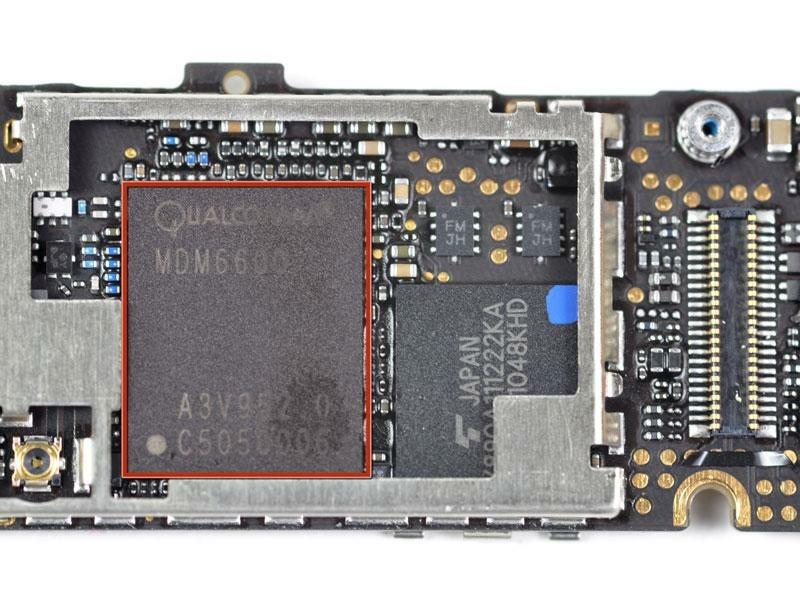Apple in court proceedings on Tuesday argued a former engineer should be credited on a Qualcomm patent being asserted against the tech giant, claims the chipmaker refutes.
Day two of Qualcomm's patent trial against Apple involved testimony surrounding a single patent relating to fast boot-up technology in smartphone systems, reports CNET.
Echoing claims aired during Monday's opening remarks, Apple says former engineer Arjuna Siva first proposed the idea for U.S. Patent No. 8,838,949 to Qualcomm counterparts prior to 2011. At the time, Apple and Qualcomm, were forging ahead with plans to incorporate the chipmaker's modem technology in iPhone. The project was so secretive that the companies assumed aliases in correspondence, with Apple identified as "Maverick" and Qualcomm as "Eureka," the report said.
Entitled "Direct scatter loading of executable software image from a primary processor to one or more secondary processor in a multi-processor system," the '949 patent details methods by which a secondary processor such as a wireless modem can quickly boot without its own system image on dedicated non-volatile memory. Along with quicker connectivity on startup, the innovation allowed for more efficient use of system memory allotments, cutting down on internal space requirements and build costs.
According to Apple, Siva floated the idea in an email to Qualcomm engineers, who, as Apple counsel Juanita Brooks said on Monday, "[T]ook the idea from us and ran down to the patent office." Qualcomm disagrees with that recounting of events.
Qualcomm director of engineering Stephen Haenichen on Monday said that Siva did not deserve credit for the invention. Haenichen, who is named as an inventor on the '949 patent, claims Siva did "nothing at all" to contribute to the property, adding that Qualcomm delivered on a tall order to build modem technology on short notice.
"It was clear this was going to change the way we build modems," Haenichen said. "It was going to be meaningful to Qualcomm."
Siva, who now works at Google, is scheduled to testify at a later date.
The San Diego case kicked off on Monday and is the first action in the long-running Qualcomm and Apple struggle to involve a U.S. jury. Apple sparked what would become a global conflict by suing Qualcomm in 2017 over alleged monopolistic licensing practices, allegations similar to those levied in a U.S. Federal Trade Commission antitrust action that wrapped up last month.
The two companies have filed multiple lawsuits, countersuits and complaints with governmental agencies around the world since the 2017 action.
 Mikey Campbell
Mikey Campbell







-m.jpg)






 Andrew Orr
Andrew Orr
 Amber Neely
Amber Neely
 Marko Zivkovic
Marko Zivkovic
 William Gallagher and Mike Wuerthele
William Gallagher and Mike Wuerthele



 Mike Wuerthele
Mike Wuerthele









15 Comments
Did anyone expect Qualcomm to say, "Oh, hey! That's right. Totally forgot about that. Nevermind this lawsuit!"?
Serious question, does this even make a difference that Siva supposedly offered the idea? Qualcomm has the patent, not Apple so it seem, at least in regard to that idea, that Qualcomm has the advantage.
It sounds like Siva told Stephen about the idea, Stephen told Siva it was bad idea, but turned around and decided to patent it himself. If that happen there is no way Siva might have known that happen. Stephen did not have to tell Siva he was issued the patent.
I do not think about would make this claim and call Siva as witness if it did not happen this way. Notice Stephen did not say when he had the idea and it predated Apple's email.